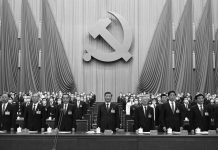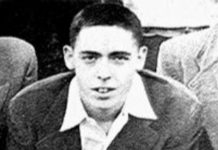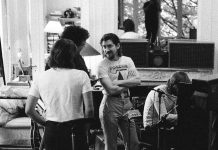The South Korean audiovisual industry has been around for many, many years, giving us tremendous joy. In the same way, we are a large number of devotees who have spent a long time claiming their mastery when it comes to telling stories in images; particularly with regard to his mastery of suspense and his innate ability to surprise with atypical narrative and structural games outside its borders.
The samples of genius that can be found in the last century are countless, ranging from Park Chan-wook’s extraordinary revenge trilogy to that terrifying cathedral titled ‘I found the devil’, going through high-voltage bombings like ‘The Yellow Sea’, ‘The man without a past’ or ‘The Chaser’. However, despite this, the massive recognition of this Asian factory in the West took longer to arrive than it deserved .
It may be that, together with the indisputable victory at the Oscars for Bong Joon-ho’s ‘Parasites’, the definitive irruption of South Korea on our screens came from the hand of ‘The Squid Game’, and it is precisely its protagonist, Lee Jung-jae, who has once again demonstrated the power of his homeland with his directorial debut; an electrifying action-packed spy thriller that, under the title ‘Hunt. Hunt the spy’, gives us a new dose of first-class cinema.
Four acts without blinking
The first scene of ‘Hunt’, in addition to allowing us to savor a first taste of the levels of tension and exhausting pace that mark its tight 125-minute duration, hints that Lee —who also leads the cast of the film— not only has a overwhelming presence in front of the cameras; He also shows off a mastery of tension and cinematographic language inappropriate for a newcomer.
In just a few minutes, the director, supported by cinematographer Lee Mo-gae —’The Redeemer’, ‘The good, the bad and the weird’— and, above all, by the overwhelming editing of veteran Kim Sang- beom —responsible for cuts of jewels like ‘Old Boy’ or the aforementioned ‘The Man Without a Past’—, condenses and anticipates the hectic festival of impossible turns, shootings and conspiracies on which what is undoubtedly one of the one of the first big releases of 2023.
Leaving aside the formal neatness that, at this point, is usually taken for granted in this type of production, it is de rigueur to praise the equally effective narrative treatment of a ‘Hunt’ that takes advantage of every last drop of its careful setting in the troubled Dictatorial South Korea of the early 1980s and historical tensions with its northern neighbors.
This attractive framework serves as the basis for a story in which the coups of effect are everything and that sins of an excess of complexity that could play a trick on the most clueless viewers, who are likely to get lost among moles, clues and double games . Of course, anyone who overcomes this small inconvenience will enjoy an intense journey that reaches its peak thanks to the South Korean taste for the four-act structure.
And it is that, when ‘Hunt’ seemed to have given us everything it could offer us —which is not little— and suggested the arrival of an anticlimax that would close the dramatic arc of its protagonist, it accelerates to reach cruising speed again and, eventually, overcome it in a final setpiece that could be described with only two adjectives: excessive and spectacular. An unexpected finishing touch for a thriller that may not stand out among its most famous counterparts, but that, speaking of this industry, is already synonymous with great quality.




































